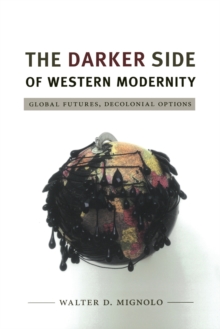
Coloniality at Large : Latin America and the Postcolonial Debate PDF
Edited by Morana Mabel Morana, Dussel Enrique Dussel, Jauregui Carlos A. Jauregui
Part of the Latin America otherwise series
Description
Written by internationally renowned scholars based in Latin America, the United States, and Europe, the essays reflect multiple disciplinary and ideological perspectives. Some are translated into English for the first time. The collection includes theoretical reflections, literary criticism, and historical and ethnographic case studies focused on Ecuador, Guatemala, Mexico, Brazil, the Andes, and the Caribbean. Contributors examine the relation of Marxist thought, dependency theory, and liberation theology to Latin Americans' experience of and resistance to coloniality, and they emphasize the critique of Occidentalism and modernity as central to any understanding of the colonial project. Analyzing the many ways that Latin Americans have resisted imperialism and sought emancipation and sovereignty over several centuries, they delve into topics including violence, identity, otherness, memory, heterogeneity, and language. Contributors also explore Latin American intellectuals' ambivalence about, or objections to, the "post" in postcolonial; to many, globalization and neoliberalism are the contemporary guises of colonialism in Latin America.
Contributors: Arturo Arias, Gordon Brotherston, Santiago Castro-Gomez, Sara Castro-Klaren, Amaryll Chanady, Fernando Coronil, Roman de la Campa, Enrique Dussel, Ramon Grosfoguel, Russell G. Hamilton, Peter Hulme, Carlos A. Jauregui, Michael Lowy, Nelson Maldonado-Torres, Jose Antonio Mazzotti, Eduardo Mendieta, Walter D. Mignolo, Mario Roberto Morales, Mabel Morana, Mary Louise Pratt, Anibal Quijano, Jose Rabasa, Elzbieta Sklodowska, Catherine E. Walsh
Information
-
Download - Immediately Available
- Format:PDF
- Pages:640 pages
- Publisher:Duke University Press
- Publication Date:16/07/2008
- Category:
- ISBN:9780822388883
Information
-
Download - Immediately Available
- Format:PDF
- Pages:640 pages
- Publisher:Duke University Press
- Publication Date:16/07/2008
- Category:
- ISBN:9780822388883










